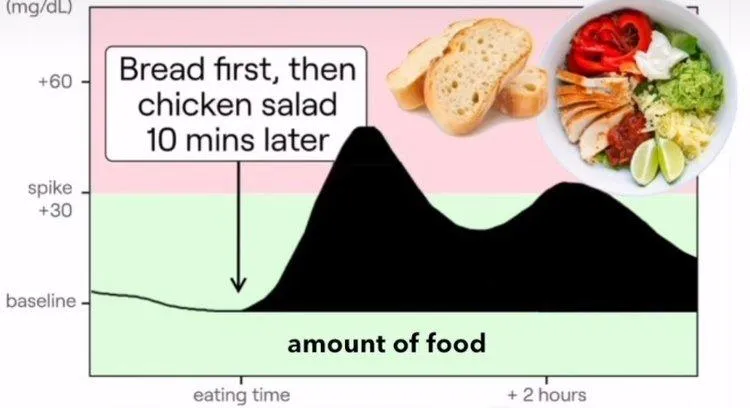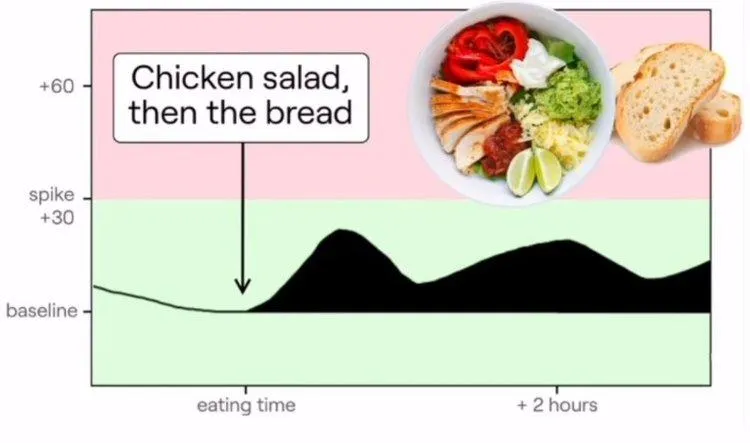The Relationship Between Menopause Blood Sugar & Cholesterol
The order of, and which foods, impacts blood sugar levels
(see graphs below)_


Declining estrogen affects blood sugar regulation, which decreases insulin sensitivity and increases the risk of insulin resistance, type 2 diabetes, obesity and increased risk to heart disease.
Glucose spikes are sudden and often unexpected increases in blood sugar levels that typically occur after consuming high-carbohydrate or sugary foods and also from a stressful experience.
While some fluctuation in blood sugar is a normal part of daily life, experiencing frequent spikes from an unhealthy diet can lead to significant health problems over time. These sudden spikes can trigger the release of excessive amounts of insulin, which often causes blood sugar levels to drop sharply afterwards. This rapid decline can result in symptoms such as fatigue, irritability, and intense cravings for more sugar or simple carbohydrates, consequently creating a repetitive cycle of unhealthy eating habits.
Over time, persistently high glucose levels, can contribute to insulin resistance, whereby the body’s cells become less responsive to insulin. This condition increases the risk of developing type 2 diabetes, which can bring about serious health issues such as heart disease, kidney damage, and nerve problems.
Furthermore, chronic high glucose levels and commonly elevated cortisol in menopause can initiate and promote inflammation in the body, which has been linked to various diseases.
To maintain overall health and well-being, it is crucial to effectively manage and minimise glucose spikes. Adopting nutrition to balance blood sugar including whole foods, healthy fats, lean proteins, and low-glycemic carbohydrates can significantly aid in regulating blood sugar levels.
Additionally, declining oestrogen also leads to unfavorable lipid regulation including increased total cholesterol. This decrease in oestrogen can lead to higher bad cholesterol, lower good cholesterol, and loss of elasticity in blood vessels which can lead to cardio vascular diseases.
Midlife changes can be the tipping point of how your predictable health will turn out in your 60's.
"Your Midlife Symptoms Are Messages - Not Mysteries"
It has been proven to effectively reduce menopause symptoms by incorporating midlife nutrition, exercise designed for midlife movement, practicing effective stress management techniques and prioritising sleep.
We look at your blood pathology results so you understand your cholesterol and ratio of LDL and HDL and ongoingly review you nutrition and make small adjustments over time.
We also use a glucose monitor to see what foods and activities spike your blood sugar so you can get clear on your sensitivity to different carbohydrates. You learn alternative ingredients but still get to enjoy the meals you love and not feel restricted.

ⒸLEAH KAPRAL 2025 | OCEAN SHORES NSW
ALL RIGHTS RESERVED
